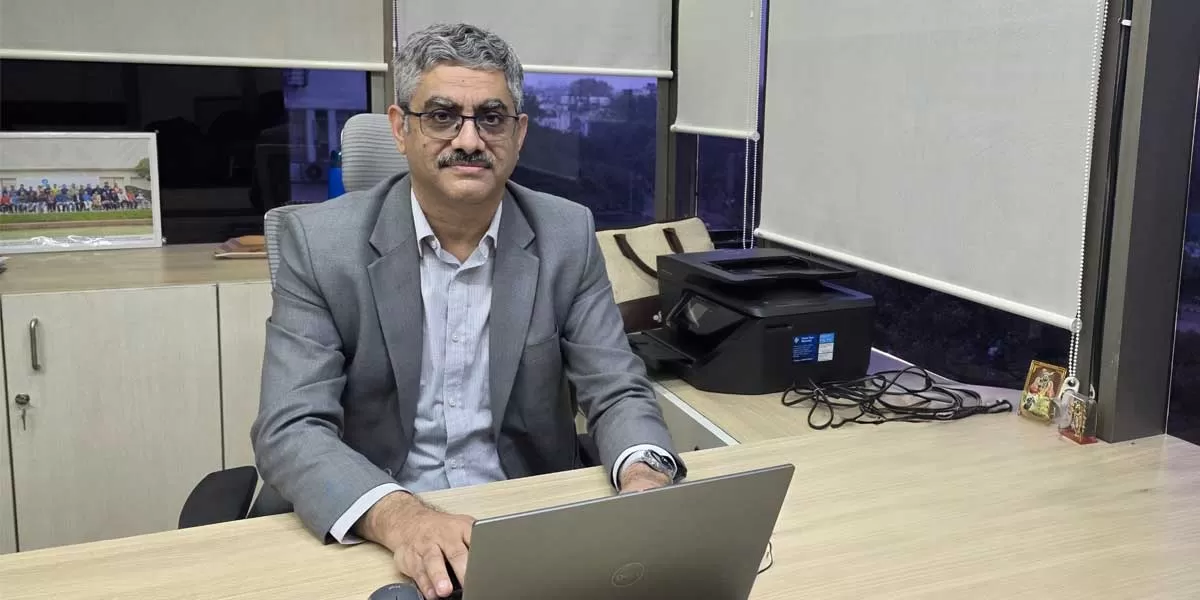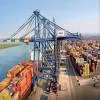“FY19 was a challenging time for India Inc. The issues were many, ranging from liquidity crunch, rising bad loans, loan defaults (principal as well as interest), slowing capex and slower automobile growth to delayed or stalled projects, financially inviable projects and an insolvency-like situation for a few large organisations. Despite all the obstacles, uncertainties and challenges, a few entities managed to persevere and prevail, posting growth and exhibiting excellence. And these are the companies, from the universe of construction, contracting, engineering and building materials, many of whom were awarded and honoured for their outstanding work at the India Construction Festival in Delhi.
The India Construction Festival, organised by FIRST Construction Council on October 15 and 16, 2019, comprised four sub-events: The India Roads Conference; CONSTRUCTION WORLD Global Awards; CONSTRUCTION WORLD Leadership Summit; and the EQUIPMENT INDIA Awards.
Guest of honour at the CONSTRUCTION WORLD Leadership Summit was Dr Anup Wadhawan, Secretary, Ministry of Commerce & Industry, Government of India.
Here’s a glimpse of what he had to say:
“The construction sector is an extremely important sector of the economy. India is a $2.7-trillion economy and the construction sector is worth $ 400 billion, which is a significant size, and has root linkages to other sectors. In a way, it is a sector that leads the economy to growth or rides it into recession; its importance cannot be overemphasised. It is difficult to set the goals our economy has; it has a critical linkage with the use of resources and critical linkage with conservation of resources. And the issues of recycling and reuse of materials are all pervading, which are linked with the construction industry. These goals can be achieved for improving the construction sector’s practices and standards.
However, I feel there is very little introspection on the feeling of our industry. Standard contracts have to be revived—why was it primarily raised, why has investor money been diverted, misused, why have promises to investors in regulation of property and other property not been kept?
Not only does introspection have to be done, but the quality of construction and timeline also need to be checked on. I would urge some element of introspection in whatever we do. Now, clearly, there is a need for us to adopt global standards in all these aspects. We need to adopt and implement guidelines of global standards where there is quality and timeline of construction and quality of materials, whether it is construction technology such as prefab or offsite. This is important for getting value for money.
Now, unfortunately, construction is a major part of government work and value for money in government work is lower than what the private sector gets. I have experienced construction from the past 30 years as a resident of government housing, which is the outcome of government collaboration with private contractors. The value you would get as an individual constructing his own house is poles apart from what value government derives from its expenditure.
Look at China, look at Singapore. Singapore has been recently developed. Malaysia, Taiwan, Indonesia… they are instances of developed countries. China is still a developing country but their infrastructure is highly developed. They have practices of accountability, prudence, using state-of-the-art technologies and materials from the intrinsic quality, aesthetics and construction technology point of view. If you look at cities like Shanghai and Beijing, the quality of the infrastructure is developed country ++. That’s the kind of standard the world has.
We certainly need to adopt these standards and the best forum for that is the industry itself. You have to come together and set some standards for yourself, try to develop a reputation. We need to improve our practices and, in the first instance, we need to introspect. There is a way of doing these things; there is a set of standards the industry adopts. There is a certain mechanism for complying to those standards in terms of conformity assessment, accreditations of entities, institutions, skilling institutions; there is a system of certification of entities, qualified persons, mutual recognition agreements and global mutual recognition that will force you to abide by certain standards.
The most disappointing thing is that we have all the ingredients for being state of the art, for being at the global benchmark; we have all the ingredients in terms of quality institutions and skills—whether it is engineering, architecture or even labour. In countries like Singapore, they are hiring skilled and semi-skilled people from Chennai. None of the ingredients are missing in India. We just need to acquire a sense of responsibility and a sense of organising ourselves to systematically deliver quality.
I am sure if we make the right effort, good results will not elude us. I urge the industry to have such sort of a monitoring mechanism, maybe some sort of a system or rating entities in different areas, so that we create a sense of competition to provide some guidance to the client for making these choices. Then you incentivise the entities to improve their reputation, improve their ratings.
Let me also take responsibility as part of the Government for what the Government needs to do. It’s not a one-sided story.
The construction sector is an area of priority for the Government and it is led by an energised ministry, the Ministry of Urban Development. The starting point is to have some introspection, some inner motivation to conspire for greater heights for better standards, better quality and better timeliness. We can learn and mainstream these practices across the industry and achieve all the goals we are seeking to achieve in this sector and for the economy as a whole.”

















